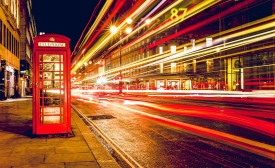british council
The British Council has unveiled a series of cultural and educational programs aimed at promoting its 'Year of Culture' to be observed across India and UK in 2017. These will include student scholarships, partnerships between Indian and British universities and a roadshow on Shakespeare - the most enduring literary and cultural icon that unites the two countries.
British Council on Friday launched '2017 UK-India Year of Culture' here to promote the spirit of cultural partnership. Aim of the campaign is to highlight the vibrant cultural history of two countries and celebrate the best 'cultural exports' together. The campaign plan was announced during the visit of Prime Minister Narendra Modi to London in November last year.
In an exchange programme launched by the British Council, students from the UK would soon get an opportunity to learn and understand the Indian culture through various short-term courses. According to a report in TOI, out of a group of 500 students, 50 will be joining the University of Kerala for a two-week-long course in Indian Studies.
The British Council has launched an exchange programme for students from the UK to study in India. A group of 500 students will arrive in the country and 50 among them will be joining the University of Kerala for a two-week-long course in Indian Studies. The syllabus will be prepared by the faculty attached with the University of Kerala.

Despite the political dissimilarities between the UK and Russia, both the countries are now coming together to ensure a meaningful cultural relationship between them, by jointly celebrating their literary works. The British Council in Russia, which leads the UK's Year of Language and Literature 2016, have been discussing the influence of Shakespeare's works on the global culture, including that of Russia.
Works of art from the Government Art Collection (GAC) are displayed in UK Government buildings in nearly every capital city, making it the most dispersed collection of British art in the world. The role of the Collection is to promote British art while contributing to cultural diplomacy.
His presentation—followed by a question-and-answer session facilitated by Elliott School of International Affairs Dean Reuben E. Brigety II—focused on “smart power,” which Mr. Devane described as a strategy that employs cultural diplomacy, public diplomacy and forward engagement.







